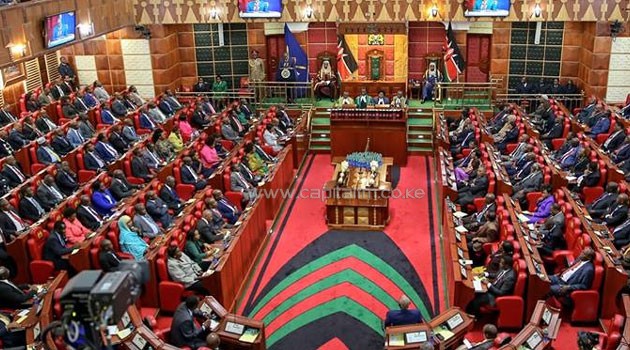NAIROBI, Kenya, Apr 18 – Members of the Parliament want a Sh5 million fine or five year jail term imposed on anyone found selling, stocking or transporting banned substances to the country’s athletes.
This is part of amendments proposed by the House Labour and Social Welfare Committee to the Anti-Doping Bill 2016, which seeks to introduce stiffer penalties to those who facilitate the vice that has tainted the sports by making banned performance enhancing drugs available to athletes.
Currently the Bill which is scheduled for the Committee of the Whole House on Tuesday already provides a Sh3 million fine or a three-year jail term to any health and medical practitioners caught smuggling or administering banned substances.
Once the Bill becomes law, a corporate body found guilty of abetting doping will have its trading license revoked for a period of not less than one year in addition to paying the proposed fine.
A registered sports body that commits the prohibited activities shall be subject to either a reprimand, withdrawal of services that are funded by public resources, withholding for a stated period, on terms to be determined by the tribunal of some or all public funding awarded but not yet paid to the agency or deregistered by the Sports Registrar.
The Bill empowers the Anti-Doping Agency of Kenya (ADAK) to impose a Sh100,000 fine and/or a year in jail on an athlete caught doping.
The House Labour and Social Welfare Committee Chairman David Were is also seeking to punish any official or officer of the Anti-Doping Agency of Kenya who leaks or violates the confidentiality provision provided under the Act by disclosing information obtained in the course of undertaking his duty.
“A person who violates the rules relating to confidentiality, public disclosure and privacy of data commits an offence and shall be liable upon conviction to a fine not exceeding one million shillings or to imprisonment for a term not exceeding three years or to both,” reads the amendment by the House Committee.
Clause 41 of the Anti-Doping Bill states that; “a member of the Board or member of staff of the Confidentiality. Agency shall not disclose any information obtained in the course of undertaking any function under this Act unless in accordance with the provisions of this Act and the law relating to information.”
The House Committee has also proposed to give the agency financial autonomy by proposing an amendment that will see it receiving its budgetary allocation from the Consolidated Fund rather than through budgetary allocations to the Ministry of Arts, Culture and Sports.
The MPs have also defined an “athlete” that the Bill will be dealing with to mean “any person who competes in sport at the international level as defined by an international federation or at the national level as defined by the agency.”
Kenya is racing against time to meet the World Anti-Doping Agency (WADA) deadline which was extended to May 5 to ensure compliance.
This comes after the country missed the two initial deadlines of February 16 and April 5.
READ: Hope for athletes as Anti Doping Bill listed for debate
The new Bill is intended to save Kenyan athletes from an Olympics ban threatened by IAAF president Sebastian Coe.
The IAAF earlier this month listed Kenya among five countries in “critical care” over their inadequate anti-doping measures.
Some 40 Kenyan athletes have been involved in drug scandals in the last three years leading to the suspension of Athletics-Kenya Chief Executive Officer Isaac Mwangi for alleged corruption involving doping cover-ups, drawing a sharp rebuke from WADA.
-By Laban Wanambisi-
The post MPs seek stricter penalties in anti-doping law appeared first on Capital Sports.
